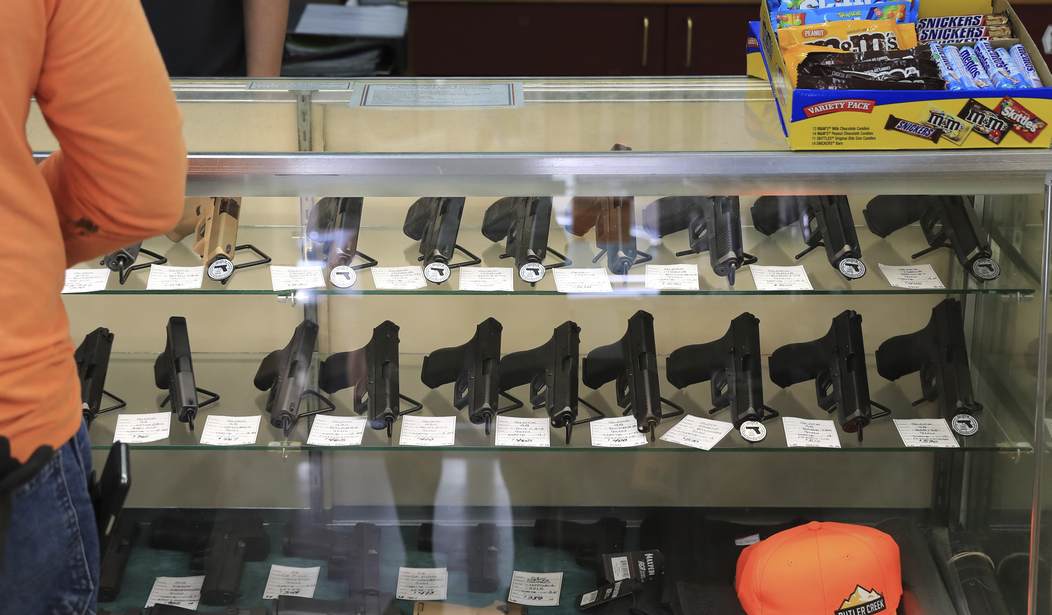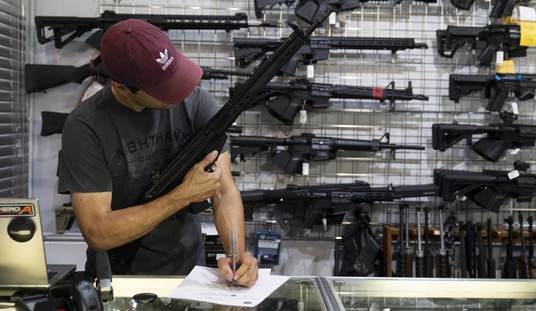While lawmakers in Maine didn't adopt a "red flag" law or a ban on so-called assault weapons after the shootings in Lewiston last October, the Democrat-controlled legislature did pass a bill mandating a 72-hour waiting period on all gun sales earlier this year; legislation that Gov. Janet Mills allowed to become law without her signature.
Second Amendment supporters and 2A groups vowed to challenge the measure in court, and though it took several months, a lawsuit has officially been filed in the U.S. District Court in Maine. The plaintiffs include several residents of Maine, including federal firearms licensees, along with a company that provides firearm training. In their complaint, the plaintiffs argue that you need only to look at their own personal experiences to see the "devasting" effect the new law has had on law-abiding citizens.
Plaintiff Andrea Beckwith is a domestic-abuse survivor who has dedicated her life to helping other women who are trying to escape and recover from abusive situations. She offers self-defense classes to victims and survivors of domestic violence and other tragic experiences all throughout Maine. A certified firearms instructor, Beckwith used to be able to help women promptly secure a firearm to defend themselves after providing them with the training needed to safely operate and store it, giving victims of physical, sexual, and emotional abuse a critical measure of security in a most perilous time. Now, however, she must send them home unarmed for three days—three days in which their abusers will now know that they cannot legally secure the means to defend themselves.
Gun control advocates billed the 72-hour wait as a "cooling off" period, but there are times when someone needs to acquire a firearm for self-defense immediately. And let's face it; abusers may not be able to legally possess a firearm in many circumstances, but that doesn't mean they won't get ahold of one illegally. As WABI in Maine reported today:
Agnes Barden’s abuser is getting out of jail on Wednesday morning.
By the time he’s released, she’ll have fled with her daughter. She says it’s her only option.
“I have a whole life that I have to evacuate,” said Barden.
She says her husband abused her for years and that she finally went to the police when her husband threatened to burn down their house and kill her and their daughter.
Court documents show that he pleaded guilty to domestic violence terrorizing and illegal gun possession. Despite having prior convictions, he’ll get out after spending less than a year in jail.
“I was very adamant about it the day of the sentencing, and they still just let him accept a plea,” said Barden.
When she heard he was getting released, she panicked and turned to advocates for advice.
“She’s telling us that we’re on, like, a high mortality list,” said Barden about the advice she was given by an advocate. “That we have ... if he’s released, there is a high probability he’s going to come back home, and he’s going to try to harm you and your daughter. You’re not safe there.”
I have no idea if Agnes Barden wants a gun to defend herself and her daughter, but I do know that the state should not impose a three-day waiting period before she can legally take possession of a firearm.
The burden that the law places on crime victims and those who need immediate access to a firearm for self-defense is awful, but those aren't the only individuals impacted by the waiting period. The retailers who've joined in the lawsuit say they've suffered "massive drops in sales" since the 72-hour delays began, leaving the future of their companies in doubt... and in some cases, putting their customers at risk.
Like J White Gunsmithing, A&G Shooting also sells firearms to people with a time sensitive need to acquire a firearm. A&G has found itself in such a situation twice since Section 2016 took effect. In the first instance, a single woman from a nearby town came to the store on a Thursday because her local police officer recommended that she purchase a firearm for home defense. The woman had just learned that she had a stalker looking through the windows and harassing her on her property. Although the police issued a restraining order against the accused individual, they also recommended that the woman obtain a firearm for self-defense. Hendsbee worked with her for over an hour to pick out a firearm that she would be comfortable with and encouraged her to sign up for training to learn additional skills and safety practices. After Hendsbee collected the woman’s identifying information, NICS issued a “proceed” determination, and she paid for the firearm in full. But because of Section 2016, she could not take possession of the firearm for 72 more hours. And because A&G is closed on Sundays and Mondays, the nex tavailable day for her to pick up the firearm was the following Tuesday. The woman was visibly shaken to learn that she would have to wait four more days to obtain the means for effective self defense.
The plaintiffs' attorneys (which includes the stellar 2A legal team of Paul Clement and Erin Murphy, along with local counsel Joshua Tardy and Brent Singer) argue that these waiting periods aren't a part of the national tradition of gun ownership. Instead, they're a late-20th Century creation that are uncommon even today, with only a handful of states adopting these artificial delays in firearm transfers.
While some states adopted waiting-period laws in the early- and mid twentieth-century, those laws were imposed to facilitate background checks or other investigatory efforts to determine whether someone is prohibited from possessing a firearm. “Cooling-off period” laws, by contrast, are not tethered to any such efforts; they simply delay the exercise of Second Amendment rights for the sake of delay, on the theory that even law-abiding citizens who have passed a background check cannot be trusted with a firearm. So even assuming twentieth century waiting-period laws could be justified as a response to the introduction of background check requirements, the handful of “cooling-off period” laws which did not come about for nearly another half century address a fundamentally different “why”—and one that is fundamentally incompatible with the Second Amendment.
The plaintiffs are asking that the federal courts strike down Maine's waiting period law, but they're also seeking a preliminary injunction that will halt enforcement of the law while the litigation is ongoing. Given the irreparable harm that's being done to FFLs and to residents with a timely need to acquire a firearm, I'd say granting that injunctive relief should be an easy call, but we'll have to wait and see if the judge overseeing the case agrees.









Join the conversation as a VIP Member